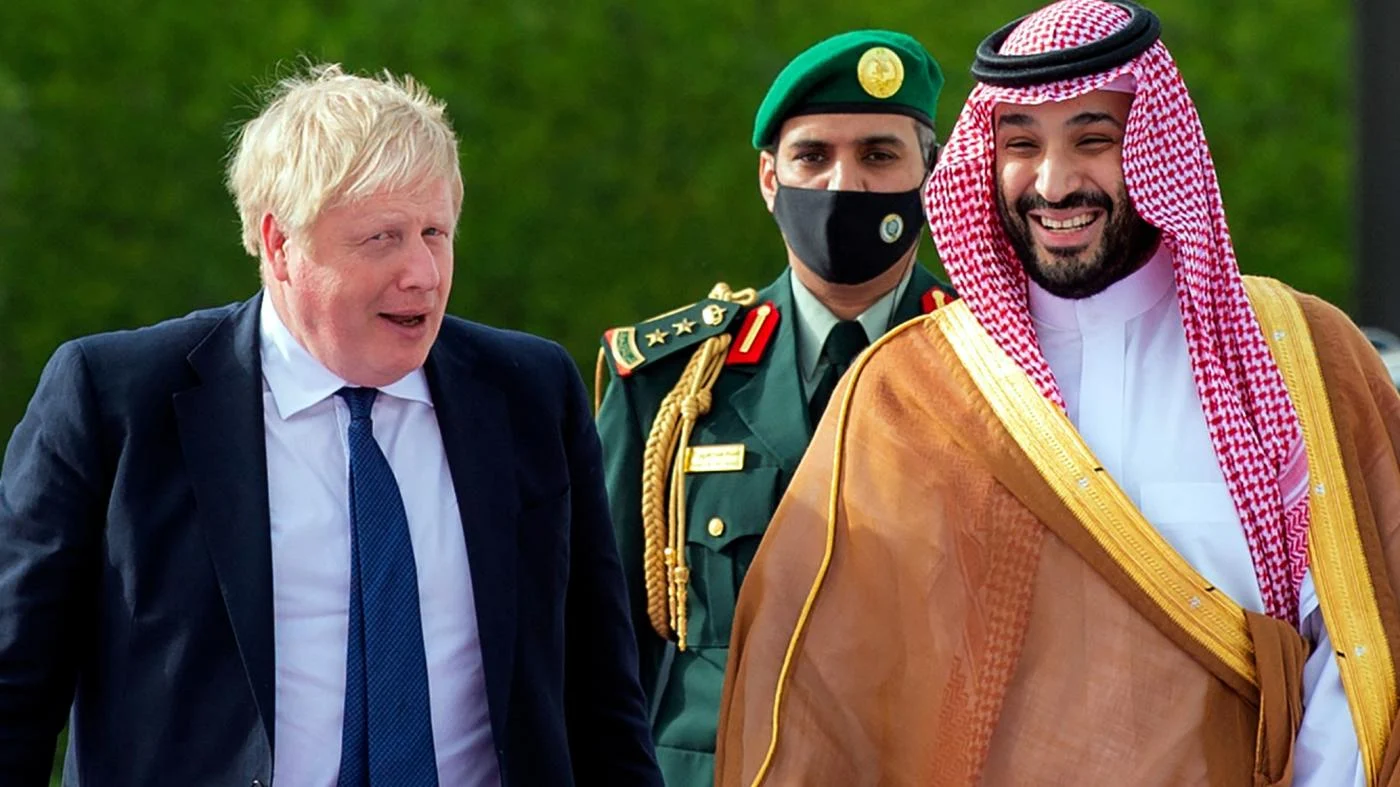Saudi Crown Prince Mohammed bin Salman is reaping profits from the Western country’s dependence on cheap oil at the current global energy crisis as he wants these states to tolerate his “excesses and executions”, an article says.
Last Saturday, Saudi Arabia broke its record for mass executions when official media announced that 81 people had been put to death, exceeding the total number killed in the whole of 2021.
Three others were also executed on Wednesday, the same day when British Prime Minister Boris Johnson visited Riyadh to encourage the regime to begin pumping more oil in a bid to calm markets shaken by the Russian operation in Ukraine.
The Middle East Eye (MEE) news portal on Friday drew attention to the timing of the execution spree.
“With the whole world occupied by the Ukraine crisis and rising energy prices, Saudi Crown Prince Mohammed bin Salman apparently felt it was the right moment for such large-scale executions. He knows that the future of many western leaders, notably Johnson and US President Joe Biden, along with global economic recovery after two years of Covid-19 inflation, depends on securing cheap oil and gas,” read the article written by Madawi al-Rasheed, visiting professor at the Middle East Institute of the London School of Economics.
READ ALSO: Iranians prepare to welcome Nowruz
“This was the crown prince’s historical moment to flex his muscles and demand that the West treat him with respect, after three years of being considered a pariah. He is impatiently waiting for rehabilitation in Washington, which Biden could seal with a handshake.”
Bin Salman, the article said, did not meet Johnson’s visit with too much pomp as the British premier was met at the airport by the deputy governor of Riyadh rather than a higher-ranking official.
It further referred to the Saudi heir to the throne’s recent interview with the Atlantic.
Asked whether the US misunderstood something about him, bin Salman replied, “Simply, I do not care,” apparently maintaining that executions, detentions, unlawful treatment of prisoners, and various other human rights violations are all matters of national sovereignty.
“In short, if the West wants cheap oil, they must tolerate his excesses and executions, rather than bringing such matters to the negotiating table,” according to the article.
The Saudi crown prince, it said, has a long list of executions to carry out in the future and that he will continue to do so. “Like other dictators, bin Salman does not care about his reputation.”
“For now, bin Salman is reaping profits from a western crisis that refuses to be resolved: namely, dependence on dictators’ cheap oil,” it added.
As many as 41 of those executed in Saudi Arabia were young men from the Qatif region in the Shia-populated Eastern Province, who took part in anti-regime protests to call for greater political participation.
The province has been on the scene of peaceful demonstrations since February 2011, with the participants demanding reforms, freedom of expression, the release of political prisoners, and an end to economic and religious discrimination against the region.













